Tuesday marks the end of the final full quarter of political fundraising before November’s midterm elections, and both campaigns and outside groups aren’t just cramming inboxes with solicitations: They’re resorting to bold-faced lies.
On both sides of the fight, political groups are fast at work driving fear into the hearts of their supporters with terrifying ALL-CAPS subject lines and pleas of poverty. But aside from those messaging gimmicks, they are resorting to even less savory tactics to drive up their end-of-quarter fundraising totals, including invented “memberships” and matched donations.
Political email lists are generally self-selecting groups of supporters inclined to make donations and unfazed by the constant pleas for cash, and these tactics have proven remarkably effective. But the latest fundraising innovations may be furthering the erosion of what little trust remains in the political system, and potentially in the very same groups looking to fundraise.
“Over the long term it’s important for candidates and parties to have the trust and goodwill of their supporters, which these kinds of tactics can chip away at,” one Democratic digital consultant warned. “Over the short term, obviously, they can drive a lot of donations. So that’s a balance each campaign and committee has to figure out how to strike. But you don’t want to wind up in a position where, when you have an actual crisis to communicate around or a message that legitimately needs to be delivered, no one is paying any attention. Nor, on a human level, do you really want to irritate everyone.”
Here are some of the worst offenders:
The “Triple-Match”
A favorite of both the Democratic Congressional Campaign Committee and the National Republican Congressional Committee, among others, the gimmick suggests that donations will be triple-matched by another donor. This is a practice that’s common in non-profit fundraising, but is fraught with issues in political fundraising. High-dollar donations, for instance, legally cannot be triple-matched by a donor without running afoul of Federal Election Commission contribution limits. Experts say it’s an outright lie—a practice that would draw increased scrutiny in the private sector, but not in politics. Neither the DCCC nor the NRCC would comment on the practice.
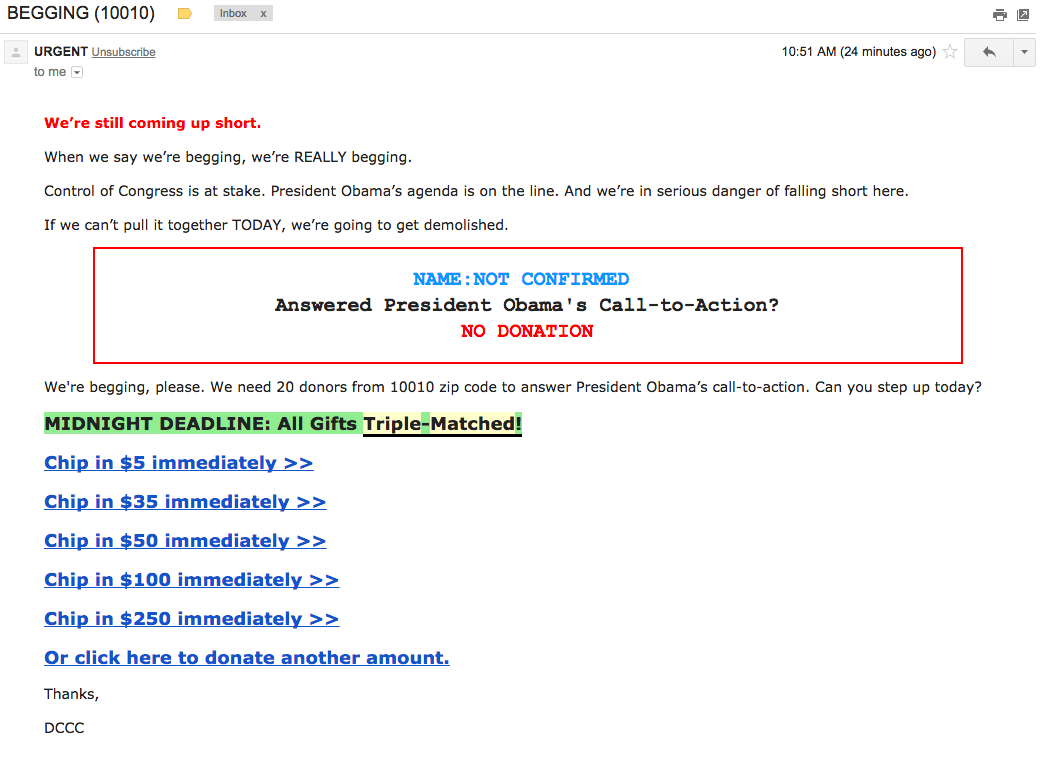
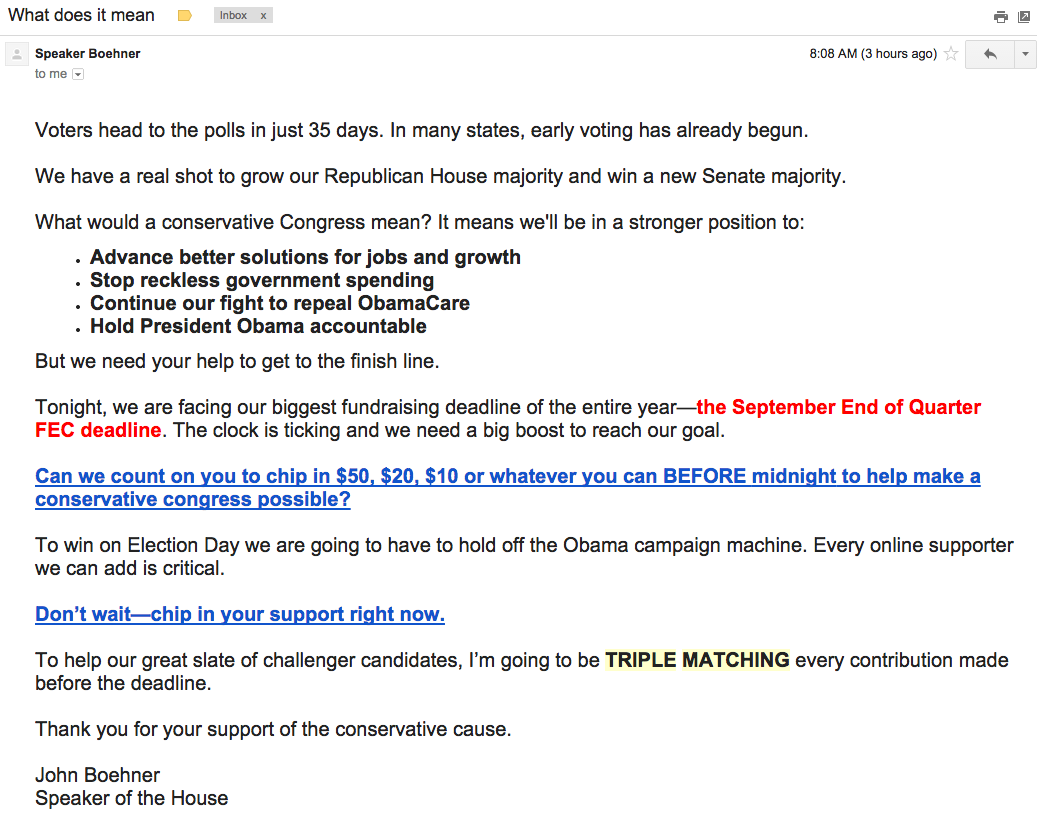
While top-tier donors are often afforded special privileges, many political groups advertise “membership” for average online donors—a meaningless designation. House Majority PAC and the National Republican Senatorial Committee are recent offenders on this front.
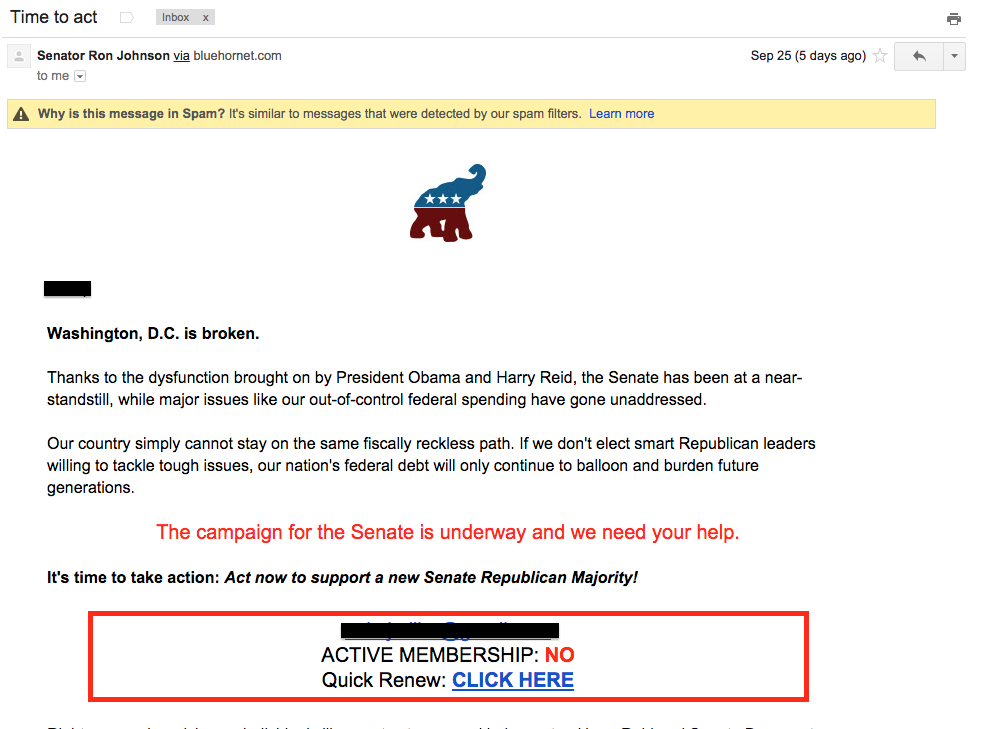
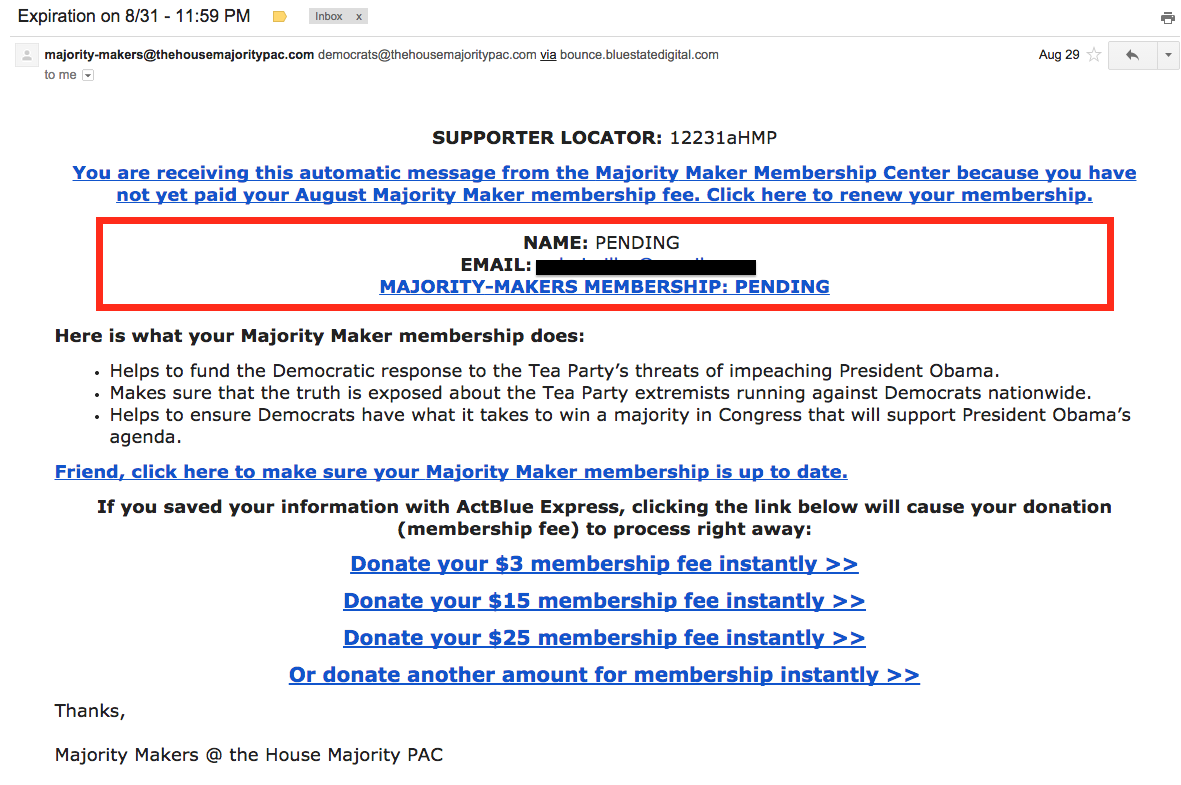
Fake subject lines
It’s not uncommon for political groups to fake subject lines, but they are increasingly designed to appear as though sent by friends or acquaintances. House Majority PAC has taken to suggesting that emails are being sent from staffers’ “(personal)” accounts or even their iPads. That’s not the case.
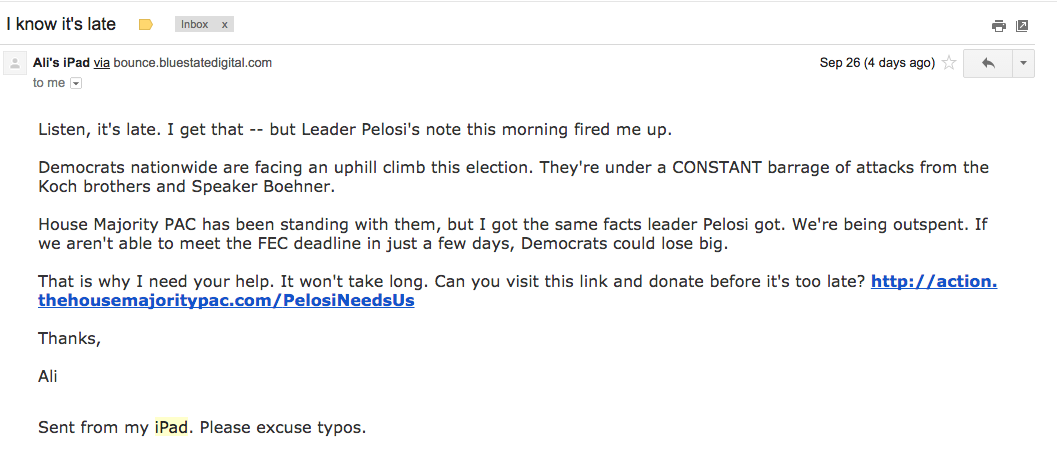
More Must-Reads from TIME
- Cybersecurity Experts Are Sounding the Alarm on DOGE
- Meet the 2025 Women of the Year
- The Harsh Truth About Disability Inclusion
- Why Do More Young Adults Have Cancer?
- Colman Domingo Leads With Radical Love
- How to Get Better at Doing Things Alone
- Michelle Zauner Stares Down the Darkness
Contact us at letters@time.com